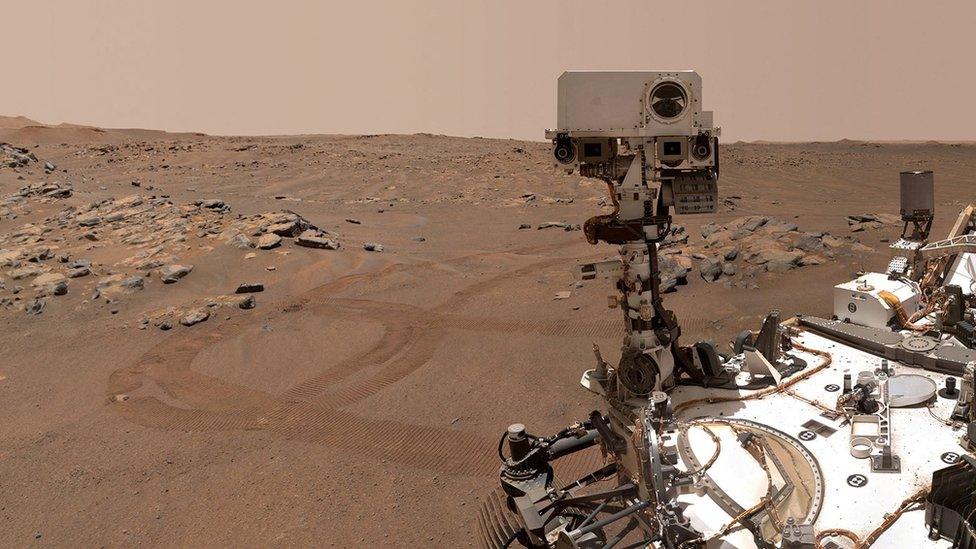Perseverance rover snaps amazing solar eclipse on Mars
- Published
- comments
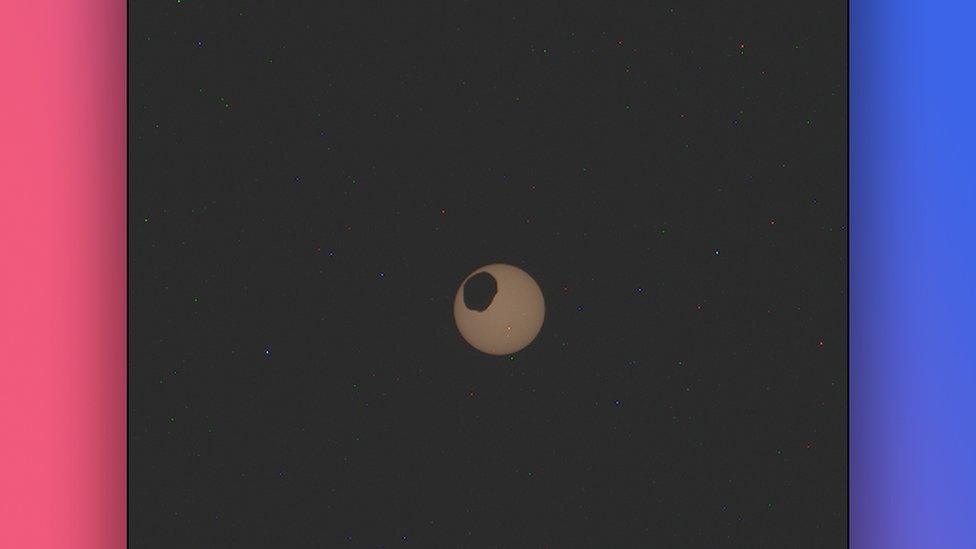
Nasa's Perseverance rover captured a picture of a Mars solar eclipse
Nasa's Perseverance rover has snapped some incredible pictures of a solar eclipse on Mars.
The robot, nicknamed Percy, captured dozens of images of Mars' moon Phobos travelling between the Red Planet and the Sun.
Phobos is one of two moons that orbits Mars. According to Nasa, it travels around the planet three times a day.
But because of Phobos' small size, it is not possible for Mars to experience a total solar eclipse.
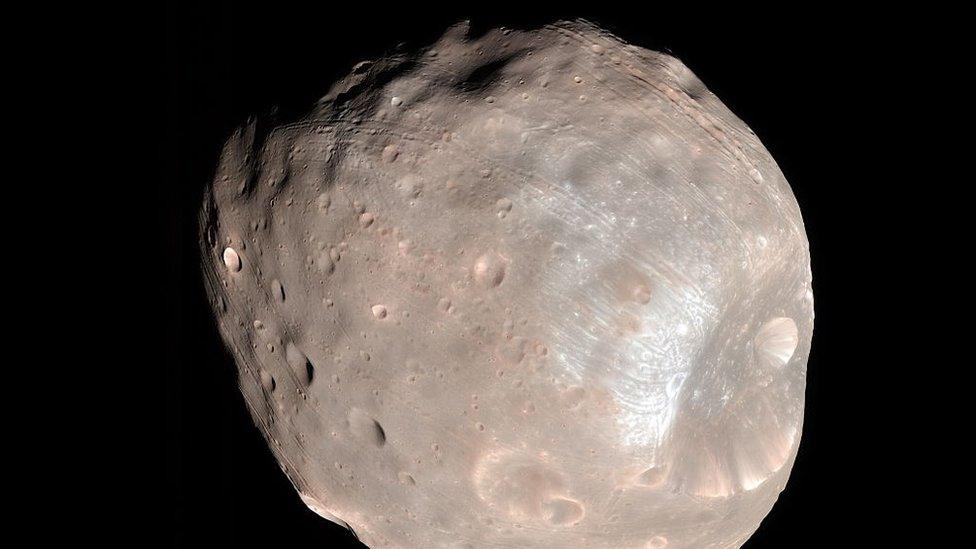
A photograph of Mars' largest moon, Phobos
Mars' moons explained
Phobos is a very small moon compared to our own.
It was first discovered by astronomer Asaph Hall in 1877, its widest point is 17 miles (27 kilometres) across.
That's tiny if you compare it to our Moon which has a diameter of 2,159 miles (3,475 kilometers)!
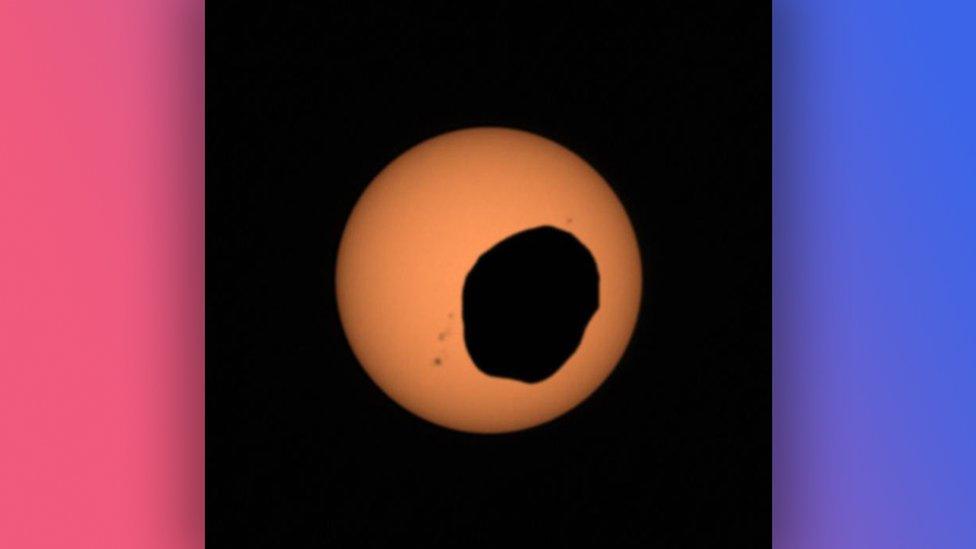
This is not the first time a Mars solar eclipse has been captured by the rover, this image was taken in 2022
But Phobos is actually the larger of Mars' moons, the other being Deimos which is only 9 miles across.
According to Nasa's profile on Phobos, the moon is actually moving closer to Mars by six feet (1.8 metres) every year.
At this rate it is expected to collide with Mars within 50 million years, or break up into pieces as it moves closer to the planet.
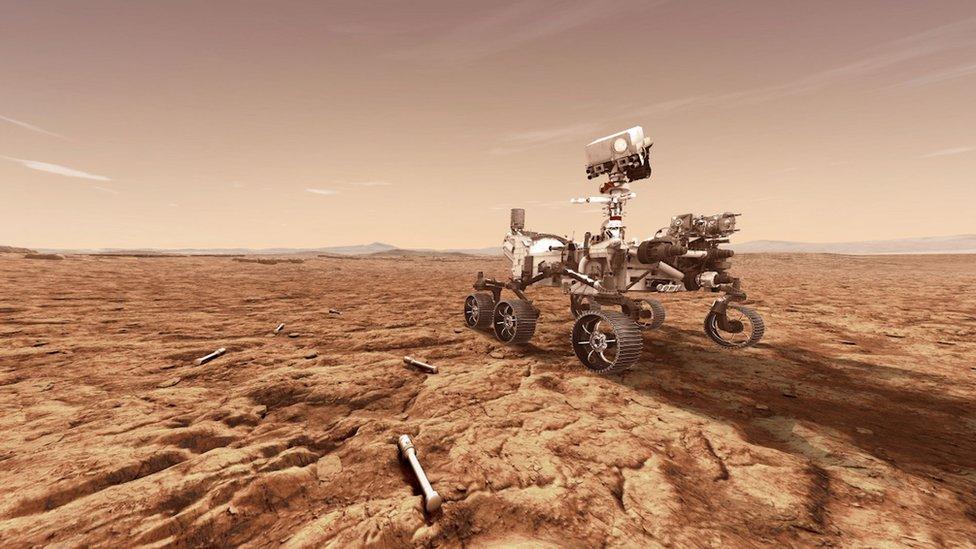
The Perseverance rover is on an important mission which could help scientists find life on Mars
Perseverance's mission
Perseverance is a car-sized rover sent by Nasa to investigate Mars.
Its primary job is to collect samples from the surface of Mars for analysis back on Earth.
But it is also there to observe the planet - each Mars day (known as a Sol), the rover sends pictures and video back to Earth.
These samples and Perseverance's observations could reveal whether the planet was once home to life.
If Perseverance's mission is successful, it's hoped the samples will arrive on Earth in 2033.
- Published15 February 2024
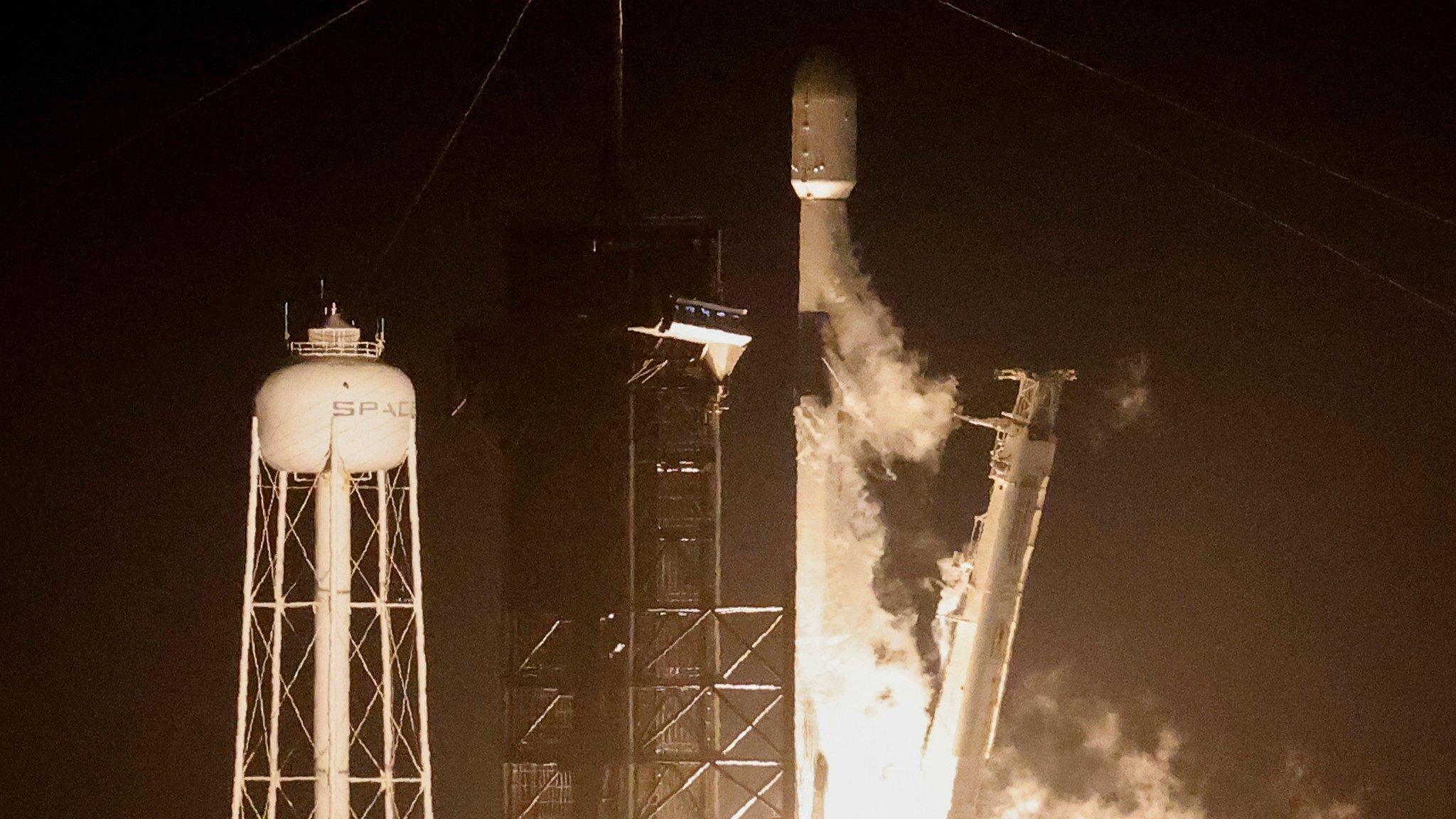
- Published28 July 2022
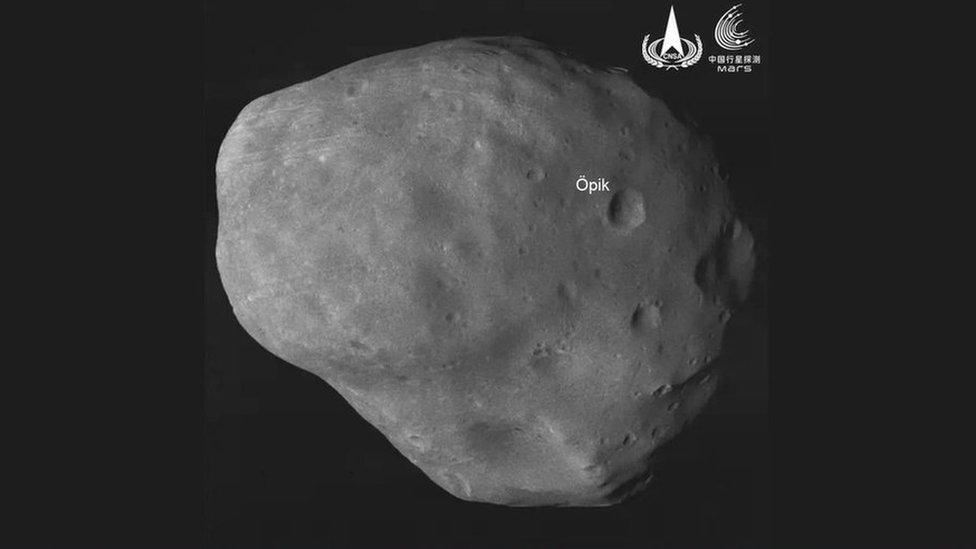
- Published1 February 2024
